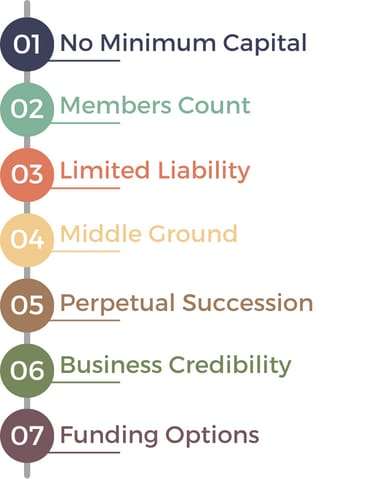FAQ
+
Satisfied Enterprenuers
-Trademark Renewal after every 10 years of Registration
- Work handled by professionals
- Completely online process
- Get your Trademark renewal before expiration at an affordable cost
 The validity of a Trademark Renewal in India is for the tenure of 10 years from the date of its registration, after the expiry of which it has to get renewed by filing a Trademark Renewal in India online along with the requisite fee to the registrar of trademark. Every proprietor who has registered its brand name and is using the same since years must get its Trademark Renewal Service after every 10 years otherwise he shall loose all the protection and privileges that comes along with the trademark registration.
The validity of a Trademark Renewal in India is for the tenure of 10 years from the date of its registration, after the expiry of which it has to get renewed by filing a Trademark Renewal in India online along with the requisite fee to the registrar of trademark. Every proprietor who has registered its brand name and is using the same since years must get its Trademark Renewal Service after every 10 years otherwise he shall loose all the protection and privileges that comes along with the trademark registration.
The owners or holders of all registered trademarks and service marks are inevitably required to renew the registration of their respective mark well within the prescribed period, at the domestic or international level. A renewal application should be made before expiration of the mark according to prescribed Online Trademark Renewal fees, otherwise additional fees is levied in the process and the same is liable to be removed from the registry of trademark.

Business Possibility – Should your brand be successful, a trademark is an intangible asset that has the potential to be quite valuable. Think about brands like Tide, Nike, or McDonald’s. Businesses can make huge amounts of royalties through licensing agreements or even the sale of ownership to interested parties.
Distinct Identity – You would like clients to associate your brand with the goods or services you offer. Registering your trademark will provide you with the required uniqueness. The registration of any similar phrases or catchphrases would then be forbidden by law.

According to rules 57 and 58 in the 2017 Trade Mark Rules,
If a Online Trademark Renewal is not renewed within six months of its expiration date, it will be deleted from the Register of Trademarks.
If a trademark is not renewed on time than it will certainly lead to abandonment and the proprietor who was enjoying the protection and legal rights of his brand name will loose all the benefit of exclusiveness. It will not only affect the legal rights of the proprietor but every person who has either been assigned the mark or licensed to use the same. Therefore, in order to enjoy the exclusiveness and uphold the legal position, the mark should be renewed on time.
Yes a registered office is mandatory for starting a Section 8 Company.
No. Rule 3 of the Companies (Incorporation) Rules, 2014 prohibits a one person company to be incorporated as section 8 company or to convert into a Section 8 Company.
Registrars of Companies of respective jurisdictions are delegated with the powers of Central government to issue license to Section 8 Companies.
The person must be of 18 years or above and can be native to any country.
A minimum of two people is required to register a section 8 company in India.
Can be used to create charitable entities.
● The main instrument of the trust is the deed, it is where the main objective and instruments are specified clearly during incorporation.
● The licensing must be done from the Government where is issued by the Ministry of Corporate Affairs.
● The Company would have profit and lose just like other incorporations, but this must all be dealt only via charitable activities.
● It is established as trust via the trust deed by the members who result to form the management.
A Non-Governmental Organization (NGO) is an organization that is independently established and operated, usually with a charitable, educational, religious, or social purpose. NGOs are usually non-profit and do not have a profit motive. A Section 8 Company is a non-profit organization formed to promote commerce, art, science, sports, education, research, social welfare, religion, charity, protection of environment or any other such object. Section 8 companies are allowed to generate profit but they must use their profits for the purpose of achieving their goals and not for the benefit of its members.
Yes, NRIs, foreign nationals, and foreign entities can register a company and invest in India, subject to the Foreign Direct Investment norms set by the RBI. However, incorporation rules in India require for one Indian national to mandatorily be a part of the company on the Board of Directors.
Satisfied Enterprenuers
Team
Strength
Professional experience
I have registered my PVT LTD company and Trade MARK through UNILEX, had a smooth process and also their price are very reasonable across the industry. Great Work Guys.......
Very professional and committed people for every legal and secretarial services.
Very prompt and dedicated person. Helped a lot throughout the process and ensured things got done in time. Strong recommendation from us.
Excellent service and prompt response. Good in communication and keeps proactively updating the status."
"Really happy to work with professionals, very dedicated and experienced. Good support in GST."
Truly happy with the service as we will be busy with our other works and you people make our requirements fulfilled without trouble. I am satisfied with good service and follow up by team.
Unilex is registered with the Ministry of Micro, Small & Medium Enterprises (MSME), a part of Government of India.
Unilex is a ISO certified body, assuring the quality professional services to aspiring startups
Subject to our terms and conditions, money back is guaranteed if we failed to give 100% customer satisfaction
Unilex is a Google Partner. Google Partners are tasked with helping businesses market their service or products online.
Ever find yourself staring at your computer screen a good consulting slogan to come to mind? Oftentimes.